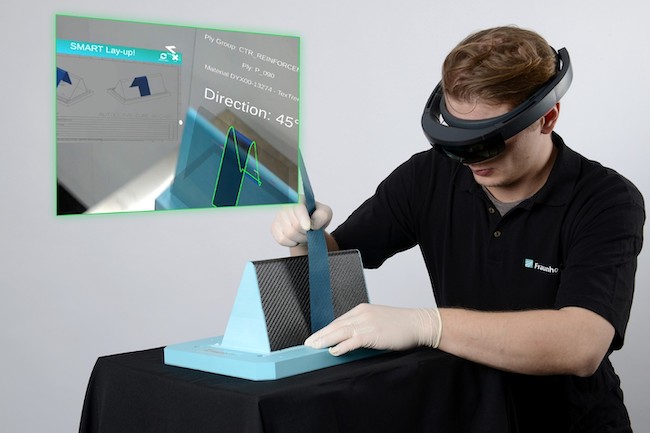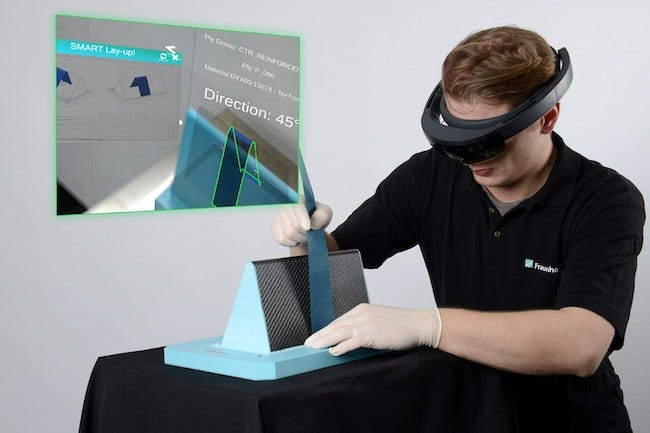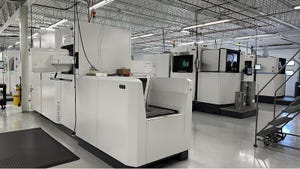Fraunhofer IPT researchers predict the new technology will improve the accuracy and traceability of components made of fiber-reinforced materials, reduce error rates, and significantly shorten process times.
March 3, 2020

Products made of fiber-reinforced plastics (FRPs) require some manual assembly to maintain their stability and flexibility after lamination and curing. In particular, the semi-finished fiber-reinforced materials must be precisely aligned by hand to achieve the full performance benefits in the finished product. Two techniques are currently employed: Printed instructions in the form of so-called plybooks, which are dependent on experienced personnel performing the work, or laser-based systems that project the position of the semi-finished product onto the mold. The first method is inexpensive but requires skilled personnel; the latter is only affordable to larger companies and is typically used in aerospace applications. The Fraunhofer Institute for Production Technology (IPT) has developed a third way. Researchers at the Aachen, Germany–based institute created software for commercially available augmented-reality glasses that shows proper positioning via a virtual representation on the mold. The technology significantly improves the quality and performance of FRP production processes, according to Fraunhofer IPT, without breaking the bank.
|
Software for commercially available smart glasses specifies the correct deposition of the semi-finished materials through a virtual representation on the mold. Image courtesy Fraunhofer Institute for Production Technology. |
The application provides the worker wearing smart glasses with much more than a digital version of the plybook. In the augmented-reality environment, the information needed to align the fiber layers or pre-impregnated fiber prepregs is displayed directly above the component. Step-by-step instructions guide the worker through the preforming process and, if required, document the work for quality assurance purposes.
The software can be easily installed as an app on data glasses with an Android operating system and can be adapted for the lay-up task at hand. Companies are invited to try out the technology and test the app in a feasibility study with their own production staff and identify individual requirements in collaboration with Fraunhofer IPT employees.
Fraunhofer IPT researchers predict that the new technology will improve the accuracy and traceability of components made of fiber-reinforced, high-performance materials; reduce error rates; and significantly shorten process times. Costing less than one-tenth of a laser projection system, the smart glass–based system can bring productivity improvements to companies of any size. It has applications in medical technology, boat building and mechanical engineering as well as in upmarket consumer products made of fiber-reinforced lightweight materials, said Fraunhofer IPT .
A demonstrator system with a Microsoft HoloLens will be on display at JEC World on May 12 to 14 in Paris. Fraunhofer IPT is scheduled to exhibit in hall 5, booth L97.
About the Author(s)
You May Also Like




